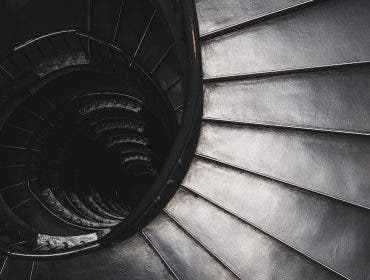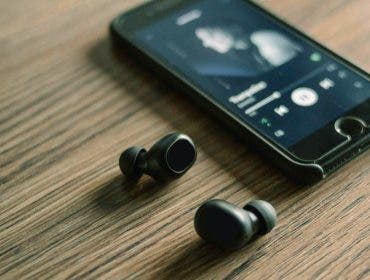Canon EF lenses led the industry for years after they launched and, in most ways, they still do. The glass is simply unmatched in sharpness and durability. They truly have a lens for every creator out there. The biggest problem is, which Canon EF lens is for you? There are so many to choose from, but if you consider your budget and what you need for your genre of photography, it’ll be easier to find out which of these lenses would be best for you. If you are looking to expand your lens lineup, this list will help you make the right choice.
Canon EF-Mount Cameras
Though Canon is shifting a major focus on the RF lenses and bodies, you really can’t beat the durability and performance of some of their EF products such as the Canon 5D Mark IV and the Canon 1 DX. If you want to shoot on these camera bodies, you will need to stay invested in the EF lens line.
Canon EOS 1DX Mark III DSLR Body
The Canon 1D X Mark III is Canon’s flagship camera for professional photographers of all kinds. It features a 20.1MP Full frame CMOS sensor, DIGIC X image processor with 191-point AF system. It’s an ultra-trough, incredibly fast DSLR, and has been a Canon fan favorite for years now.
Canon EOS 5D Mark IV DSLR Body
The Canon 5d Mark IV is a staple camera body in the industry. It is a part of one of the most recognizable lines in the digital age and appeals to both enthusiasts and professional photographers. It has a higher resolution sensor and 4k video recording capabilities. The 30.4MP CMOS sensor produces incredible imagery and has the same AF system as the 1D X Mark II.
Best EF Mount Lenses
Rokinon 14mm f/2.8 AF Lens for Canon EF
The Rokinon 14mm f/2.8 is the first autofocus Canon lens to come from Rokinon. Not only that, it is also Canon’s first fully weather-sealed lens as well. It is a professional level lens, built with uncompromised optical performance. It’s reduced size and weight make it exceptional for being a prime lens. It features a metallic build, built-in lens hood, and is compatible with APS-C Canon EF Mount cameras.
Pros
- Weather sealed
- Compact & lightweight
- Wide field of view
Canon EF 50mm f/1.4 USM Lens
The EF 50mm f/1.4 USM is Canon’s mid-level prime lens, packed with conventional optical design with seven elements in six groups. According to Canon, the lens produces a natural bokeh background, due to its high degree of subject detection. Though it isn’t Canon’s sharpest 50mm lens, it does produce exceptional quality for the price point.
Pros
- Lightweight
- Affordable
- f/1.4 maximum aperture
Canon EF 50mm f/1.8 STM Lens
The 50mm f/1.8 is arguably one of Canon’s most sought out lenses. It is extremely affordable for what it offers and is one of the smallest lenses in its class. You can literally fit it in your pocket so it serves as a great option for either your go-to prime lens or the perfect backup lens. The AF system can be a bit slower when in a wider aperture but, overall, this lens is just too affordable not to have.
Pros
- Exceptionally affordable
- Compact & lightweight
- Sharp at f/1.8
Canon EF 85mm f/1.8 USM Lens
This lens offers excellent optical performance at a great price. Though it does have a plastic build, that doesn’t seem to affect the durability and quality of the lens overall. Though it may be considered a mid-level lens, you can easily create professional level imagery with this lens. You can expect this lens to last you a lifetime.
Pros
- Fast AF
- Inexpensive
- Excellent optical performance
Canon EF 100mm f/2.8L Macro IS USM Lens
Whether you are venturing into macro photography for the first time, or have been delving into it for some time, the Canon EF 100m f/2.8 lens is fun to use and provides excellent image quality. This lens has fast AF, combined with four stops of hybrid image stabilization, allowing the creator to work without a tripod. The 100mm focal length will add depth to your images and create even more bokeh than the average f/2.8 lens.
Pros
- Minimum close-focus distance of 30cm
- Vibration reduction
- APS-C compatible
Canon EF 16-35mm f/2.8L III USM Lens
The Canon EF 16-35mm f/2.8 III is arguably one of the most coveted lenses to come from Canon. Geared for professional-level landscape photography, this legendary lens is fully weather-sealed and is sharper than its predecessor. Though it doesn’t have built-in image stabilization, the sharpness and fast AF makes up for it. This lens is highly recommended for astro-photographers as the AF system can easily lock on to stars.
Pros
- Fully weather-sealed
- Fast AF
- Sharp image quality
Canon EF 17-40mm f/4L USM Lens
The Canon EF 17-40mm f/4 is a smaller and more affordable version of the 16-35mm f/2.8 lens. It won’t be as sharp as the 16-35mm but what it lacks in sharpness, it makes up for in size, weight and durability. You can still get professional-level imagery from this lens at a much more affordable price. This lens is weather-sealed and has an ultra-fast focus motor as well as manual focus.
Pros
- Reasonable price
- Ultra-wide field of view
- Sharp at f/4
Canon EF 24-70mm f/2 .8L II USM Lens
This lens was my workhorse when I was shooting on the EF mount. Its constant f/2.8 aperture does make the glass a little larger and heavier, but its sharpness is worth every ounce. There’s no optical stabilization, while the f/4 lens does have IS. This lens is a solid performer and is perfect for any professional-level creator.
Pros
- Sharp across all focal lengths
- f/2.8 minimum and constant aperture
- Compact
Canon EF 24-105mm f/4L IS II USM Lens
The Canon EF 24-105mm f/4 is a solid upgrade from its predecessor. It offers the one thing that the f/2.8 version does not — image stabilization. This will help the fact that it is a constant f/4, allowing you to work on slower shutter speeds. The lens delivers sharper results with less distortion than a wide angle.
Pros
- Optical image stabilization
- Minimal vignette
- Fluorine coating
Canon EF 100-400mm f/4.5-5.6L IS II USM Lens
Though it is a little pricey for not having a constant aperture, this lens is known for being incredibly sharp. Some compare it to being just as sharp as the 70-200mm f/2.8 lens. It has a compact design, very fast AF, and doubles as a decent macro lens. That’s right, this lens can focus down to 3.3 feet away from your subject. This means you can create macro imagery with a telephoto lens.
Pros
- Sharp on all focal lengths
- Quick AF
- Optically stabilized
Canon EF 400mm f/4 DO IS II USM Lens
This prime telephoto lens is phenomenal. It delivers top of the line sharpness at f/4 with no distortion. It is an expensive lens, but right in line with its class. Despite its wide aperture and super-telephoto length, this lens is quite compact and lightweight. This is a great lens for professional wildlife and sports photographers.
Pros
- Top of the line optics
- Durable build
- Rear filter system
Canon EF 600mm f/4L IS III USM Lens
The Canon EF 600mm f/4 IS III is Canon’s ultimate wildlife and sports lens. It is an absolute tank and provides users with high-end image stabilization, superb build quality, and an ultra-wide aperture at a very long super-telephoto focal length. If you can get past the price and size, this is one of the best telephoto lenses money can buy.
Pros
- Built-in IS
- Minimum focus distance of 4.2 feet
- Constant f/4 aperture
Canon EF 800mm f/5.6L IS USM Lens
Though this is the largest lens in the EF lineup and still quite heavy, the 800mm is an amazing option for sports and wildlife creators. If you’ve never used a true super-telephoto lens before, this will be hard to get used to. It is almost half a meter long when the lens hood is attached. But if you’re willing to put in the effort, this lens is truly rewarding. Designed to get you as close as possible to your subject while providing top of the line sharpness, fast AF and built-in IS, the 800mm is the big performer in the Canon EF line.
Pros
- Superb AF
- Lighter than the 600mm
- Built-in IS
Conclusion
Canon EF lenses are still just as legendary as the day they were launched. They have helped photographers at every level succeed. The best thing about the EF line is that you can still utilize them if you own a Canon EOS R Camera, using the Canon Mount Adapter EF-EOS R. This allows users, especially those looking to grow their gear arsenal, the chance to purchase high-quality lenses at a cheaper price.






